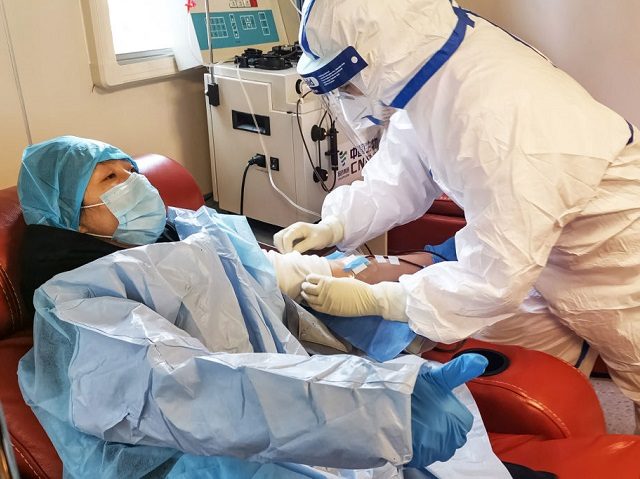Fewer people are dying from the highly contagious novel coronavirus than previously estimated, according to a study from Britain published Monday in the medical journal Lancet Infectious Diseases.
In the new study, the researchers did note that people who are 50 years or older have a substantially higher risk of dying or developing severe illness from the novel coronavirus (COVID-19).
The researchers gleaned their findings from a comprehensive analysis of virus cases in mainland China that they noted can be applied to other countries.
Referring to the coronavirus death rate in early March, Dr. Anthony Fauci, the director of the U.S. National Institute of Allergy and Infectious Diseases and member of the White House Coronavirus Taskforce, predicted, “If you look at the cases that have come to the attention of the medical authorities in China, and you just do the math, the math is about two percent.”
The new study, however, estimated the coronavirus death rate to be as low as 0.66 percent.
When the Lancet study researchers took into account cases that may not have been clinically confirmed — mild or asymptomatic infections — the death rate in mainland China dropped to 0.66 percent, a figure that is still more than six times higher than the 0.1 percent of people killed by the flu in the United States.
When the researchers ignored the unconfirmed cases, they found that the coronavirus death rate in mainland China rose to 1.38 percent, a number that is still lower than Fauci’s earlier estimate.
Dr. Fauci did emphasize in early March that the estimated number of deaths could potentially drop, noting that “as a group, it’s going to depend completely on what the factors of asymptomatic cases are.”
According to Agence France-Presse (AFP), the Lancet study researchers acknowledged that their death rate estimate is lower than previous predictions. However, they stressed that coronavirus is still several times deadlier than the seasonal flu.
“Our estimates can be applied to any country to inform decisions around the best containment policies for COVID-19,” Azra Ghani, a Lancet study co-author from the Imperial College London, reportedly said.
“There might be outlying cases that get a lot of media attention, but our analysis very clearly shows that at age 50 and over, hospitalization is much more likely than in those under 50, and a greater proportion of cases are likely to be fatal,” Ghani added.
One of five individuals over 80 who caught the coronavirus required hospitalization, compared to around one percent of people under 30, the study showed.
To reach their conclusions, the Lancet study researchers analyzed data of more than 3,600 confirmed coronavirus cases in China.
They also looked at data from hundreds of passengers repatriated to their home countries from Wuhan, China, the birthplace of the novel coronavirus.
The new findings echo a recent assessment of the coronavirus death rate by the leading author of the Imperial College study that prompted extreme U.S. action against the coronavirus.
Dr. Neil Ferguson, the prominent epidemiologist who led the Imperial College study, suggested high-end death rate predictions about the pandemic do not line up with incoming data.
In the Imperial College study, Dr. Ferguson predicted that extreme prevention measures, including social distancing and non-essential business closures that governments across the world have implemented, would keep the death rate low.
About half (3.5 billion) of the world’s population and more than three out of every four Americans (over 250 million) are currently living under coronavirus-linked locked down orders.
Both the Imperial College and Lancet studies show that up to 80 percent of the population could contract the coronavirus illness or COVID-19 absent any prevention measures.
The coronavirus had infected more than 838,000 people and killed over 41,200 across the world as of Tuesday afternoon, according to a Johns Hopkins tracker.
In the United States, the Centers for Disease Control and Prevention (CDC) reported 163,500 cases of the virus and 2,900 fatalities as of Tuesday.
Based on those figures, the death rate would be higher than predicted by the Lancet study, because those numbers only account for confirmed cases, ignoring the undiagnosed figures.

COMMENTS
Please let us know if you're having issues with commenting.